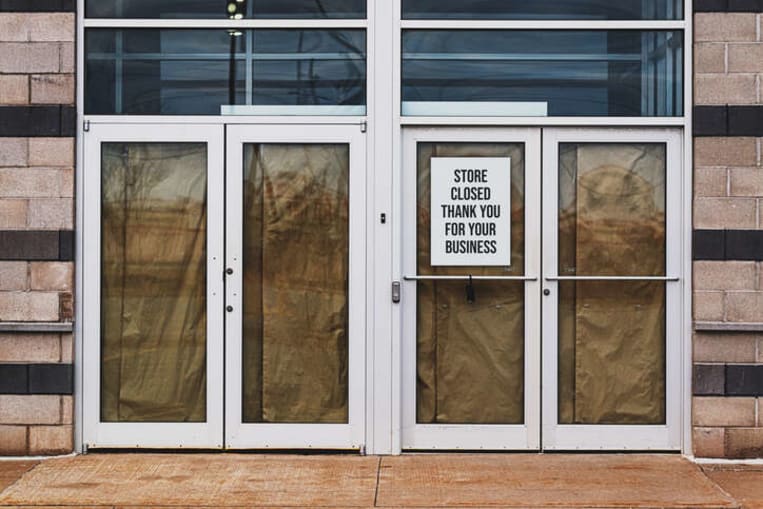
BBB Business Tip: How to close your small business

(Getty Images)
Whether your small business is no longer able to make ends meet or you’re simply ready to move on to a new venture, closing your company can be both a difficult decision and a lengthy process. Small business owners need to take several steps to ensure they fulfill all the necessary legal requirements. The following tips will help you avoid unnecessary fines and legal disputes and maintain a good business reputation as you move on to your next endeavor.
Tips for Closing a Small Business
- Develop a plan for closing. If you are a sole proprietor, you can make the decision to close on your own. But if your small business involves partners or co-owners, you’ll need to come to a mutual agreement on whether to close and how to proceed. Once the decision to close is made, it’s time to come up with an exit strategy. Keep in mind you may need the help of a trustworthy attorney and accountant as you put your plan into action.
- Let your employees know. Notifying your employees can be tough, but an open, communicative approach is often best. Give your employees plenty of warning so they can start looking for a new job and be honest about the reasons for your closure. Help employees find new jobs if you can. By taking this kind and helpful approach, employees won’t lose their respect for you, and they will stay motivated as they finish up any remaining work.
- Inform your customers. Open communication with your customers is just as important. Announcing liquidation sales will help you get rid of inventory and allow clients to snag their favorite products and use up any gift cards they may have. It’s also important to inform customers of your decision and discuss how it affects any contracts that are in progress. You may be able to finish any incomplete work but if not, you’ll need to negotiate early termination and pay any cancellation fees or refunds. This is also the time to collect any outstanding receivables.
- Comply with labor and employment laws. In the United States, some state regulations outline when you must issue your employees last paycheck. Don’t forget to reimburse employees for any out-of-pocket expenses they may have incurred and collect any company property they may have in their possession. In addition, you must report employment taxes and payments to contract workers, provide employees with a Form W-2 for the calendar year during which you paid their final wages, and make final federal tax deposits. In Canada, send all Canada Pension Plan contributions, Enployment Insurance premiums, and income tax deductions to your tax center within seven days of the day your business ends. You will also need to complete the necessary T4 slips and submit them within 30 days of the day your business ends.
- File dissolution documents. If your small business is an LLC or corporation, you must legally dissolve it with any state you are registered in to put an end to taxing and filing requirements.
- Cancel your business’ permits or licenses. Protect your reputation by promptly canceling any business permits, registrations, and licenses you no longer need.
- Close your business tax account. It’s important to cancel your employer identification number (EIN) in the United States or business number (BN) in Canada when your business closes. You’ll need to contact the Internal Revenue Service or Canada Revenue Agency with some basic documentation. (In Ontario, go to the "Change of Business Information" page on the Service Ontario website to cancel.) Remember, the IRS can’t cancel your business account until you have filed all necessary returns and paid any taxes you owed.
- Keep good records. You may be legally required to keep employment and tax records for a specific period of time. You can see the IRS article, How Long Should I Keep My Records? for more information.
For More Information
The U.S. Small Business Administration offers further advice on closing or selling your business. Be sure to read the IRS guidelines for closing a business as well. In Canada, see this article on Canada.ca about the steps to take when closing a business.
If you are a consumer and a business you frequent is closing down, see tips on what to do when a business closes.
For more resources, see the BBB Small Business Resources page. Learn how to become a BBB Accredited Business.
Still Need Assistance?
Contact Your Local BBB
Your local Better Business Bureau can assist you with finding businesses you can trust. Start With Trust®.
Additional Resources
Let BBB help you resolve problems with a business
Research and report on scams and fraud using BBB Scam Tracker
Learn more about the value of BBB Accreditation